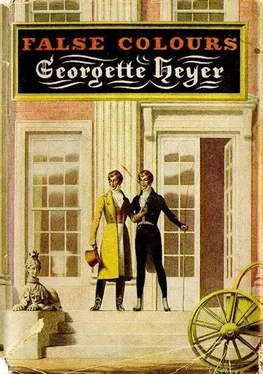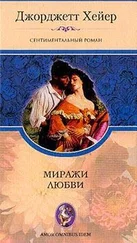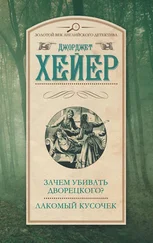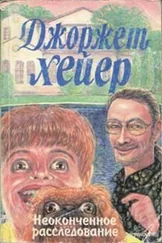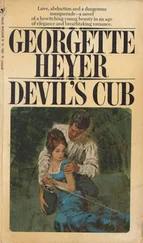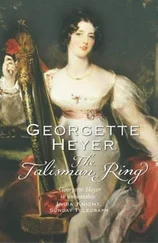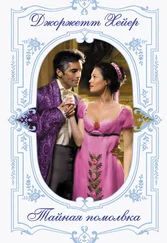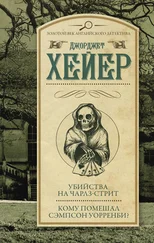Джорджетт Хейер - False Colours
Здесь есть возможность читать онлайн «Джорджетт Хейер - False Colours» весь текст электронной книги совершенно бесплатно (целиком полную версию без сокращений). В некоторых случаях можно слушать аудио, скачать через торрент в формате fb2 и присутствует краткое содержание. Год выпуска: 1963, Жанр: Исторические любовные романы, на английском языке. Описание произведения, (предисловие) а так же отзывы посетителей доступны на портале библиотеки ЛибКат.
- Название:False Colours
- Автор:
- Жанр:
- Год:1963
- ISBN:нет данных
- Рейтинг книги:5 / 5. Голосов: 1
-
Избранное:Добавить в избранное
- Отзывы:
-
Ваша оценка:
- 100
- 1
- 2
- 3
- 4
- 5
False Colours: краткое содержание, описание и аннотация
Предлагаем к чтению аннотацию, описание, краткое содержание или предисловие (зависит от того, что написал сам автор книги «False Colours»). Если вы не нашли необходимую информацию о книге — напишите в комментариях, мы постараемся отыскать её.
False Colours — читать онлайн бесплатно полную книгу (весь текст) целиком
Ниже представлен текст книги, разбитый по страницам. Система сохранения места последней прочитанной страницы, позволяет с удобством читать онлайн бесплатно книгу «False Colours», без необходимости каждый раз заново искать на чём Вы остановились. Поставьте закладку, и сможете в любой момент перейти на страницу, на которой закончили чтение.
Интервал:
Закладка:
“It does,” he agreed. His eyes alighted on the bed, and crinkled at the corners as he saw that the billowing curtains were of gauze. “Very dashing! Improper, too.”
An enchanting ripple of laughter broke from her. “Fudge! Do you think the room pretty?”
He came to sit beside her, raising her hands to his lips, and planting a kiss in its palm. “Yes, like yourself: pretty and absurd!”
“ And like you!” she retorted.
He dropped her hand, not unnaturally revolted. “Good God—! No , Mama!”
“Well, absurd, at all events,” she amended, thinking, however, that it would have been impossible to have found two more handsome men than her twin sons.
The Polite World, to which they belonged, would have said, more temperately, that the Fancot twins were a good-looking pair, but by no means as handsome as had been their father. Neither had inherited the classical regularity of his features: they favoured their mother; and although she was an accredited Beauty dispassionate persons were agreed that her loveliness lay not so much in any perfection of countenance as in her vivacious charm. This, asserted her more elderly admirers, was comparable to the charm of the Fifth Duke of Devonshire’s first wife. There were other points of resemblance between her and the Duchess: she adored her children, and she was recklessly extravagant.
As for Kit Fancot, at four-and-twenty he was a well-built young man, slightly above the average height, with good shoulders, and an excellent leg for the prevailing fashion of skin-tight pantaloons. He was darker than his mother, his glossy locks showing more chestnut than gold; and there was a firmness about his mouth which hers lacked. But his eyes were very like hers: lively, their colour between blue and gray, and laughter rarely far from them. He had her endearing smile as well; and this, with his easy unaffected manners, made him a general favourite. He was as like his brother as fourpence to a groat, only those most intimately acquainted with them being able to tell them apart. What difference there was did not lie perceptibly in feature or in stature, unless they were stood side by side, when it could be seen that Kit was a shade taller than Evelyn, and that Evelyn’s hair showed a trifle more burnished gold than Kit’s. Only the very discerning could detect the real difference between them, for it was subtle, and one of expression: Kit’s eyes were the kinder, Evelyn’s the more brilliant; each was more ready to laugh than to frown, but Kit could look grave for no reason that Evelyn could discover; and Evelyn could plummet from gaiety to despair in a manner foreign to one of Kit’s more even temper. As children they had squabbled amicably, and turned as one to annihilate any intruder into their factions; during boyhood it had been Evelyn who inaugurated their more outrageous exploits, and Kit who extricated them from the consequences. When they grew to manhood circumstances separated them for long stretches of time, but neither physical separation nor mental divergence weakened the link between them. They were not in the least unhappy when apart, for each had his own interests, but when they met after many months it was as though they had been parted for no more than a week.
Since they had come down from Oxford they had seen little of one another. It was the custom of their house for a younger son to embrace a political career, and Kit entered the diplomatic service, under the patronage of his uncle, Henry Fancot, who had just been rewarded for his labours in the ambassadorial field with a barony. He was sent first to Constantinople; but as his appointment as a junior secretary coincided with a period of calm in Turkey’s history he soon began to wish that he had persuaded his father to buy him a pair of colours; and even to wonder, with the optimism of one who had not yet attained his majority, whether it might not be possible to convince his lordship that he had mistaken his vocation. Stirring events were taking place in Europe; and it seemed intolerable to a spirited youth already dedicated to the service of his country to be thrust into a backwater. Fortunately, since the late Earl was quite the most unyielding of parents, he was transferred to St Petersburg before the monotony of his first appointment had goaded him into revolt. If he had owed his start in diplomatic life to his uncle, it was his father who was responsible for his second step: Lord Denville might be inflexible, but he was sincerely attached to Kit, and not altogether unsympathetic. His health was uncertain, and for several years he had taken little part in politics, but he had some good friends in the administration. Kit was sent, at the end of 1813, to join General Lord Cathcart’s staff, and thereafter had neither the time nor the inclination to complain of boredom. Cathcart was not only ambassador to the Tsar, but also the British Military Commissioner attached to his armies, and in his train Kit saw much of the successful campaign of 1814. For his part, Cathcart accepted Kit unenthusiastically, and would have paid no more heed to him than to any of his other secretaries if his son had not struck up an instant friendship with him. George Cathcart, a very youthful lieutenant in the 6th Dragoon Guards, was acting as his father’s military aide-de-camp. Much of his time was spent in carrying despatches to the several English officers attached to the Russian armies, but whenever he returned to what he insisted on calling headquarters he naturally sought out his only contemporary on the ambassadorial staff. Inevitably, Kit came under his lordship’s eye, and soon found favour. Cathcart thought him a likeable boy, with a good understanding, and easy manners: exactly the sort of well-bred lad who was invaluable to an overworked and elderly diplomat obliged to entertain on the grand scale. He had tact and address, and, for all his engaging lightheartedness, an instinctive discretion. When his lordship journeyed to Vienna to attend the Congress there, he took Kit with him. And there Kit had remained. Lord Castlereagh, noticing him with aloof kindness for his uncle’s sake, introduced him to the newly-appointed ambassador, who happened to be his own half-brother, and Lord Stewart took a fancy to him. What Kit thought of Stewart, whom the irreverent at the Congress dubbed Lord Pumpernickel, he kept to himself; and if he was sorry to leave Cathcart he was glad not to be sent back to St Petersburg when the war was over, By then he had not only recovered from envy of George Cathcart’s rare good fortune in having been appointed to Wellington’s staff in time to have been present at Waterloo, but had become so much interested in the tangled policies of the Peace that St Petersburg would have seemed to him almost as remote from the hub of international affairs as Constantinople.
He had met Evelyn abroad twice in the past two years, but he had only once visited England, to attend his father’s funeral. Lord Denville had died, quite suddenly, in the early spring of 1816; and since that date, some fifteen months previously, Lady Denville had not set eyes on her younger son. She thought at first that he had not altered at all, and said so. Then she corrected herself, and said: “No, that’s silly! You look older—of course you do! I am remembering how you were used to look, or trying to. The thing is, you see, that Evelyn is older too, so I’ve grown accustomed. You are still exactly like him, you know. Dearest, I wish you will tell me how it comes about that you’re here so suddenly! Have you brought home a dispatch? Do you carry dispatches, like officers?”
“No, I’m afraid not,” he answered gravely. “King’s Messengers are employed on that business. I’m here to attend to—to urgent private affairs.”
“Good gracious, Kit, I never knew you had any!” she exclaimed. “Oh, you’re trying to hoax me! Now, why?”
Читать дальшеИнтервал:
Закладка:
Похожие книги на «False Colours»
Представляем Вашему вниманию похожие книги на «False Colours» списком для выбора. Мы отобрали схожую по названию и смыслу литературу в надежде предоставить читателям больше вариантов отыскать новые, интересные, ещё непрочитанные произведения.
Обсуждение, отзывы о книге «False Colours» и просто собственные мнения читателей. Оставьте ваши комментарии, напишите, что Вы думаете о произведении, его смысле или главных героях. Укажите что конкретно понравилось, а что нет, и почему Вы так считаете.
